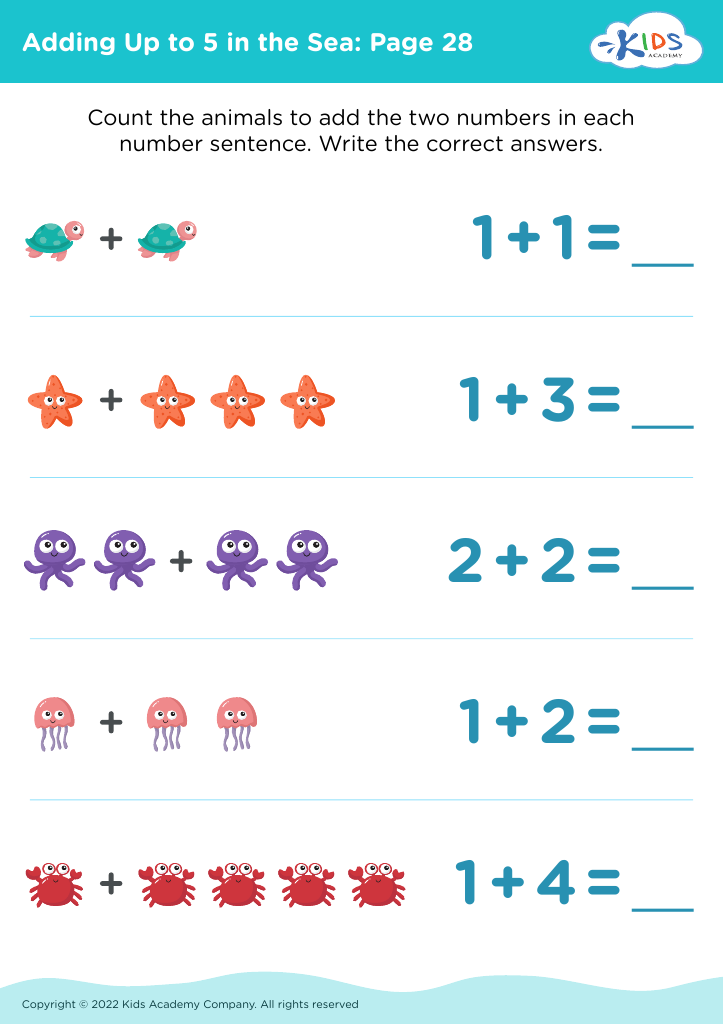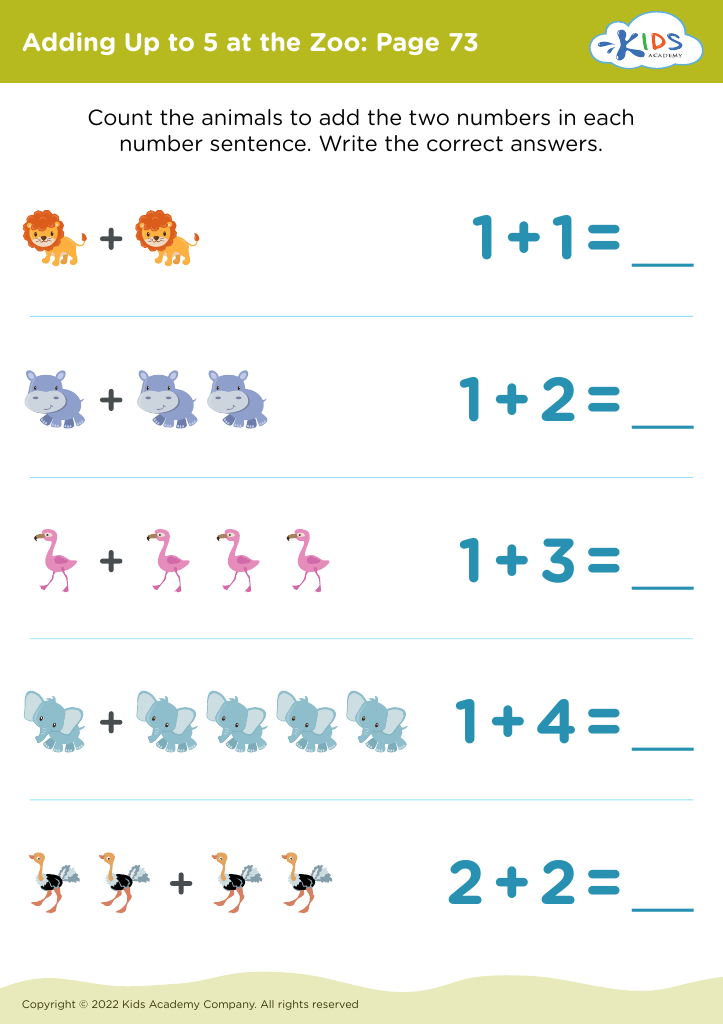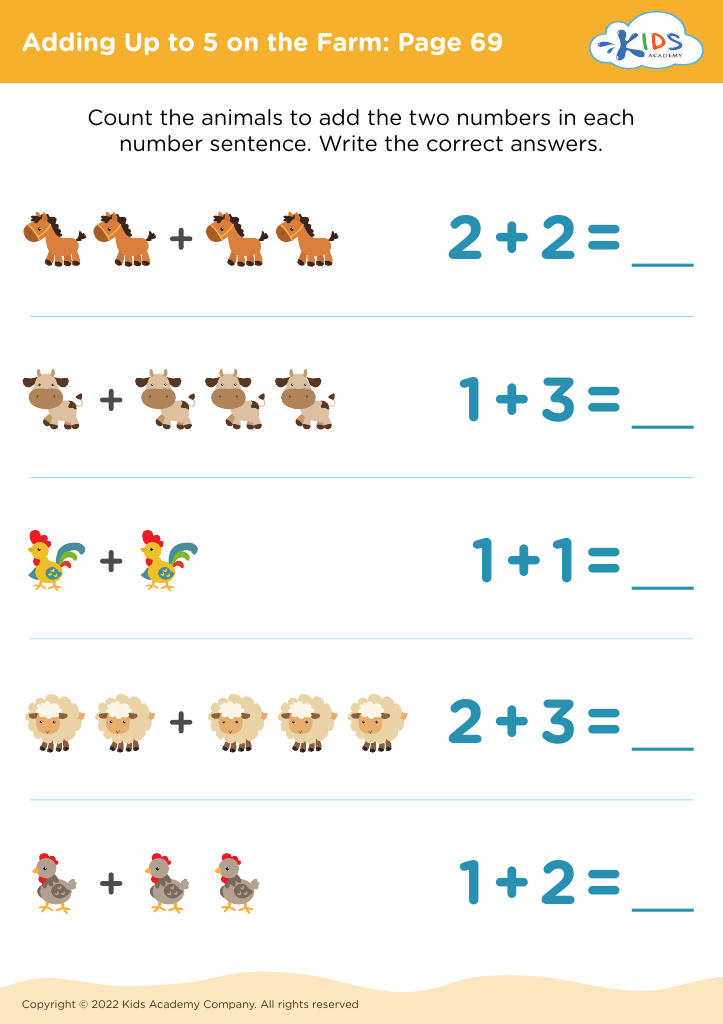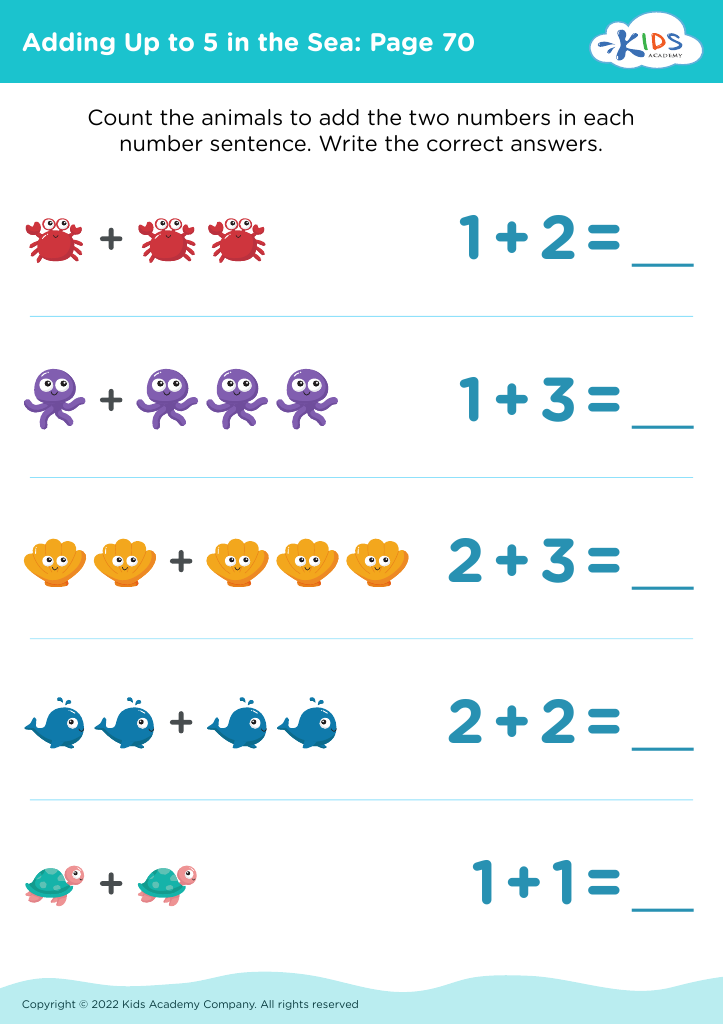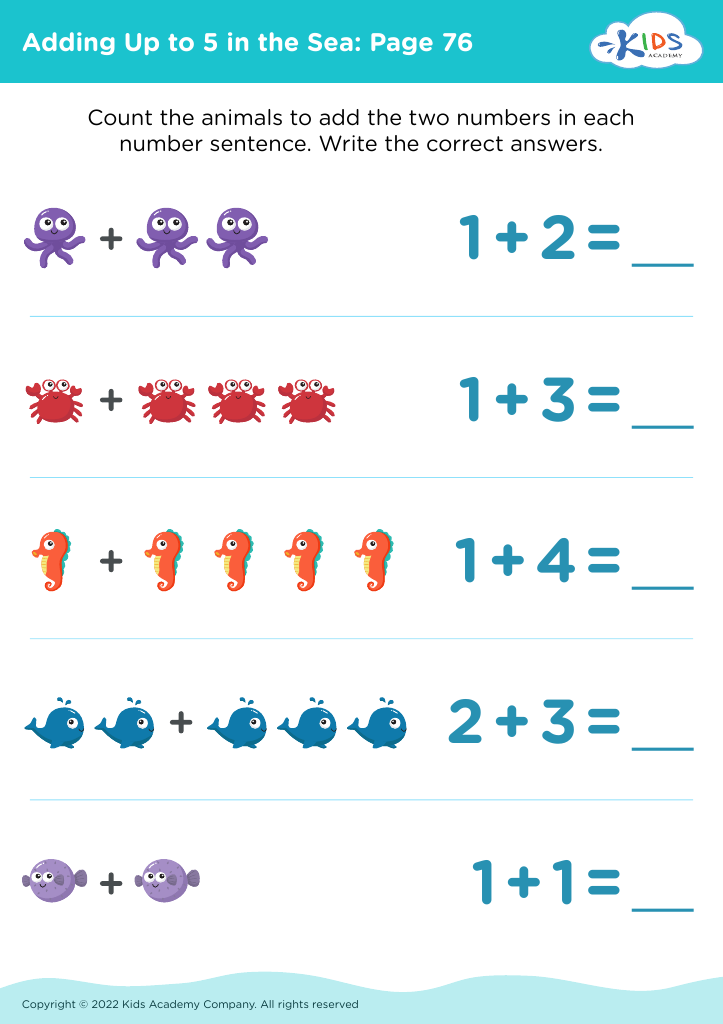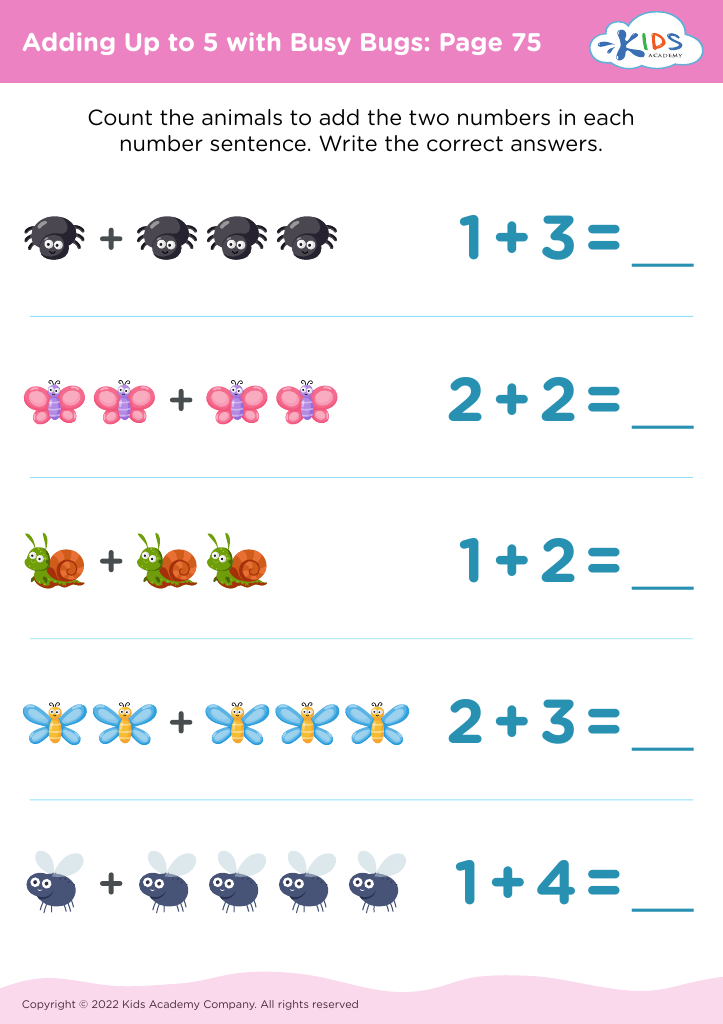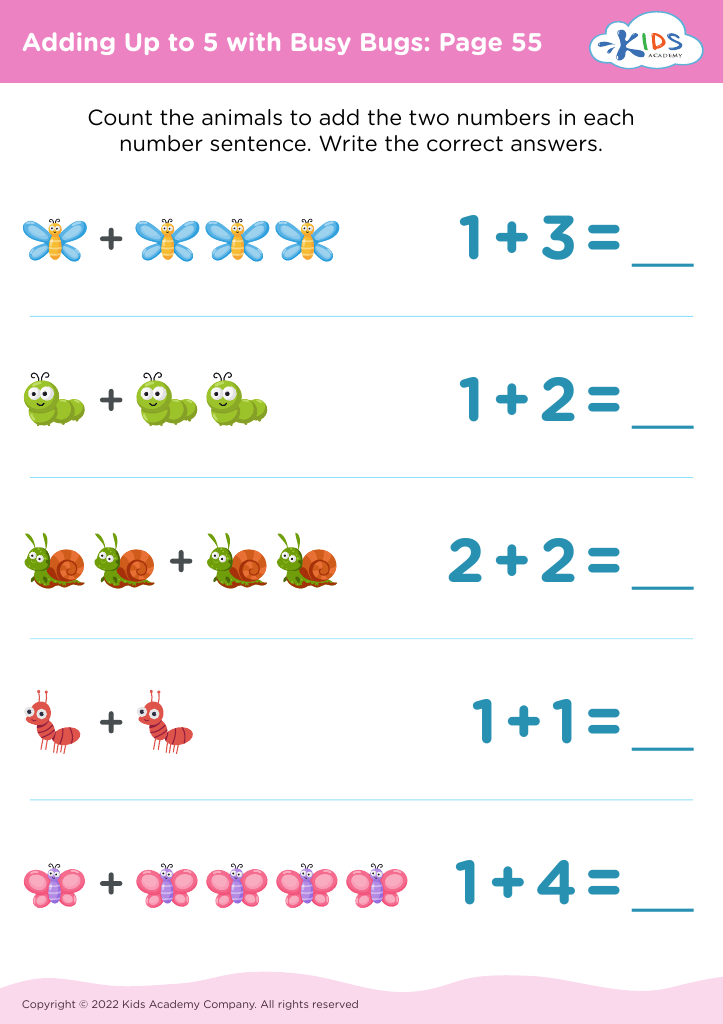Basic Math understanding Math Worksheets for Ages 5-7
12 filtered results
-
From - To
Explore our interactive and engaging Basic Math Understanding Worksheets for ages 5-7! Designed by educational experts, these worksheets help young learners grasp fundamental math concepts such as addition, subtraction, number sequences, and counting. Through colorful illustrations and fun activities, your child will build confidence and master essential math skills in an enjoyable way. Perfect for both classroom and home use, our worksheets are a valuable resource for fostering a strong foundation in early math learning. Unlock your child's potential and make math an exciting adventure with our expertly crafted learning materials!
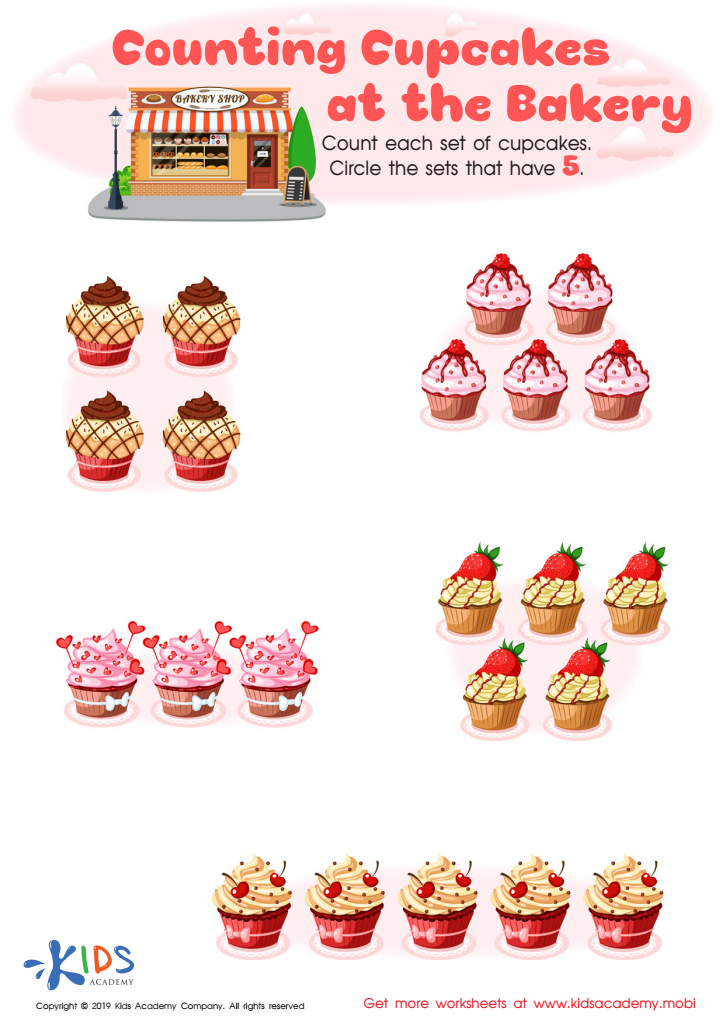

Counting Cupcakes Worksheet
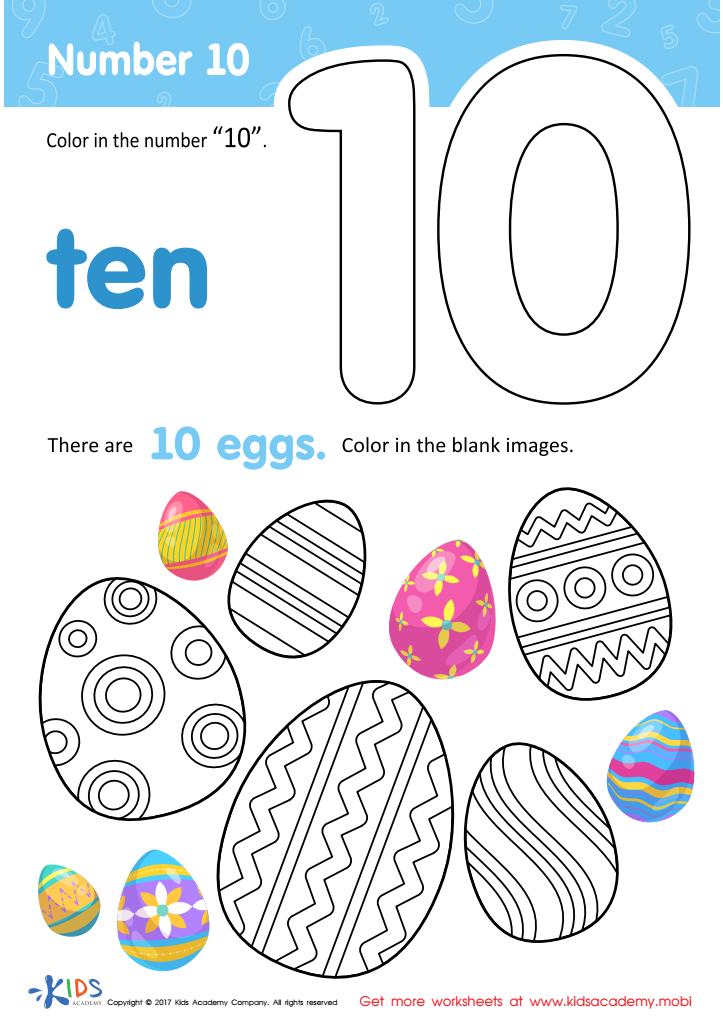

Number 10 Printable
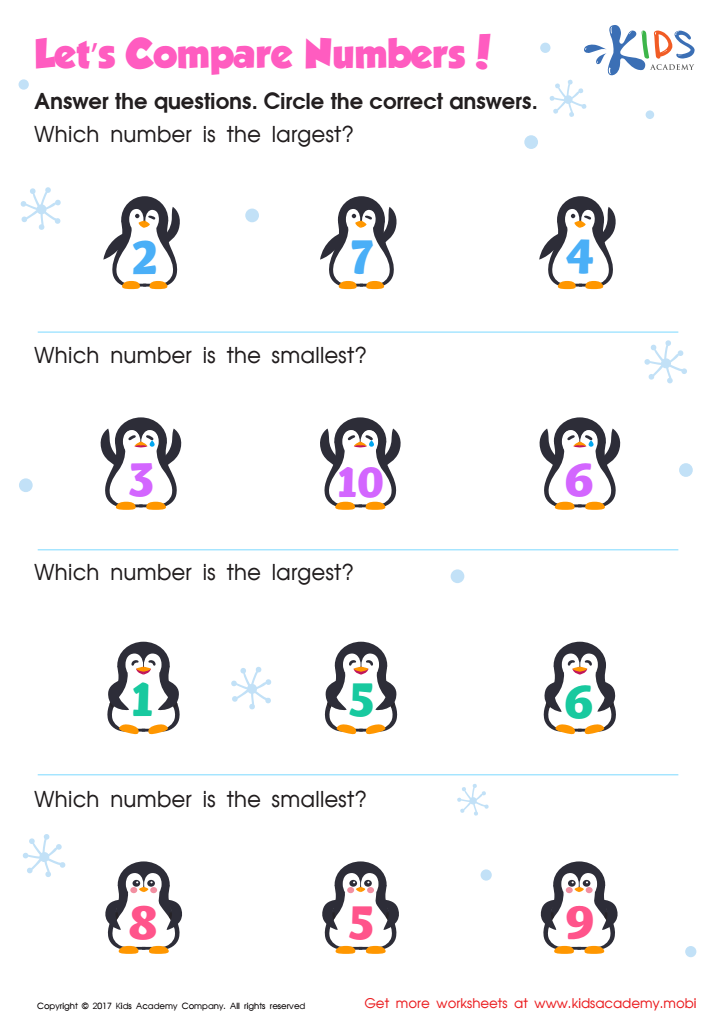

Comparing Numbers 1–10 Worksheet Kindergarten
Basic math understanding in children ages 5-7 is crucial for several fundamental reasons, both for their academic progress and life skills development. During these early years, young minds are highly receptive to new information. By introducing basic math concepts like counting, adding, and subtracting, children develop essential cognitive skills such as problem-solving, logical thinking, and analytical reasoning, all of which are foundational for more advanced mathematical learning in later grades.
For parents and teachers, ensuring a strong grasp of basic math helps foster a positive attitude towards the subject. Early success and confidence in math can spark enthusiasm and reduce potential anxiety or fear surrounding the subject in the future. Furthermore, these basic math skills are not confined to academic success alone; they are pivotal for daily tasks like telling time, handling money, or measuring ingredients in a recipe.
A solid math foundation also supports children’s overall academic performance. Math proficiency can contribute to developing other critical skills, including reading comprehension and following complex instructions. By prioritizing math education from an early age, parents and teachers are not only setting children up for academic success but also equipping them with indispensable tools for everyday life and future learning endeavors.
 Assign to My Students
Assign to My Students
